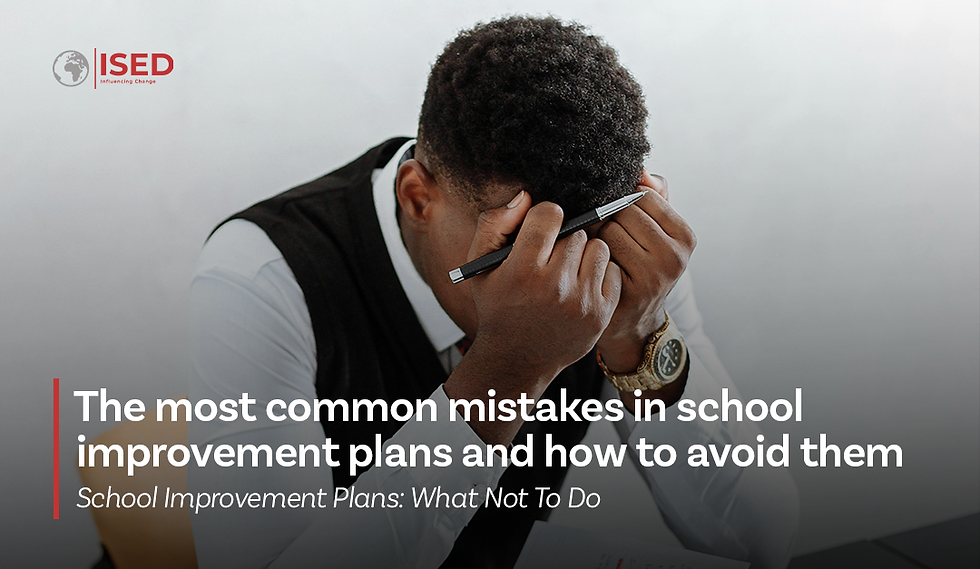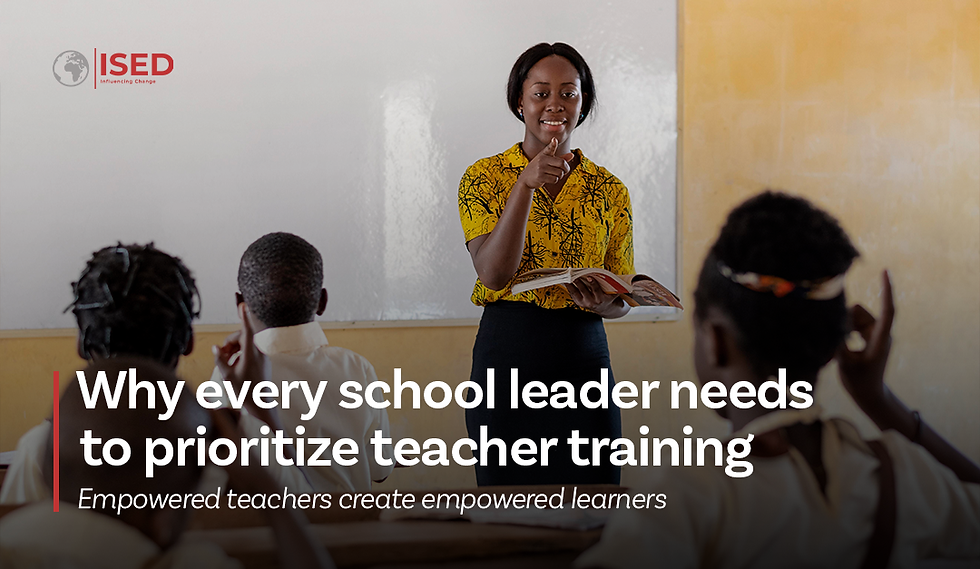The Power of Storytelling in Education
- Dr Joy Isa

- Feb 7, 2024
- 3 min read
Updated: May 9, 2024

African tradition involves the oral transfer of knowledge from generation to generation. Morales, values, systems of engagement and behaviours – these are overtly taught using stories. Storytelling wasn’t simply for entertainment but for instruction.
I believe that schools in Africa have a responsibility to promote intentional storytelling, using indigenous stories to promote the virtues of patience, kindness, self-control, love and peace.
Schools have varied forms of citizenship education curricula including PSHE, civics education, and social studies. Infusing strong virtues into curriculum areas could provide a formal, direct approach to promoting collaboration and peaceful coexistence across gender, ethnic, religious and racial divides. Clarifying the desired learning outcomes in the curriculum is important and equally important is designing creative learning activities to get students to achieve those learning outcomes. It is no longer enough to use pre-published curricula that do not include local context, as this alienates our children and young Africans from the wealth of knowledge they can access and readily apply in their daily lives.
Those of us who design curriculum content for urban communities really need to evaluate what we are promoting because children aren’t necessarily attending our schools to gain ‘formal knowledge’. They have the internet easily accessible via multiple devices in their homes. These children come to school to learn valuable skills, they come to develop dispositions that will serve them in their adult lives. We therefore have a responsibility to promote the virtues our world needs right now.
While this is not necessarily applicable to rural and suburban areas across Africa, the bigger challenge, in my opinion, is getting the adults to review their perspectives and dispositions towards the idea of collegiality across racial, ethnic, religions, and gender divides. We cannot afford to be the proverbial ‘old horses who can’t learn new tricks. Educational evolution – as I term it – emphasises a growth mindset and metacognitive awareness. We must deliberately think about how our students are thinking and design creative learning activities to help them think about ways they can create a more peaceful world for all stakeholders.
We must actively think about the WHYs, WHATs, and HOWs:
Why should the students in my class leave with the same angry dispositions they came in with?
Why are they so impatient with each other and what can I do to help them make necessary adjustments?
What moral dilemmas could I introduce to get them to perhaps expand their horizons?
How could we get them to become more responsible for their communities?
How do we keep them engaged in learning when their basic needs are not met?
Stories are a universal language that children and young people enjoy. Sharing the values we desire to see permeate our societies, via creative storytelling, should become a stable feature in African schools. Promoting peaceful coexistence by countering hate speech was the focus of the UNESCO International Day of Education, celebrated on 24 January 2024.
Our stories teach values that can help those of us in Africa begin to restore the fabric of our societies, one child at a time. Even with limited resources, we can tell stories; with a plethora of resources, we can animate and tell those same stories. What are we going to do differently to ensure that we don’t lose out on this powerful learning tool?
Thanks for reading!
Please share your thoughts with us the comments below!







Comments